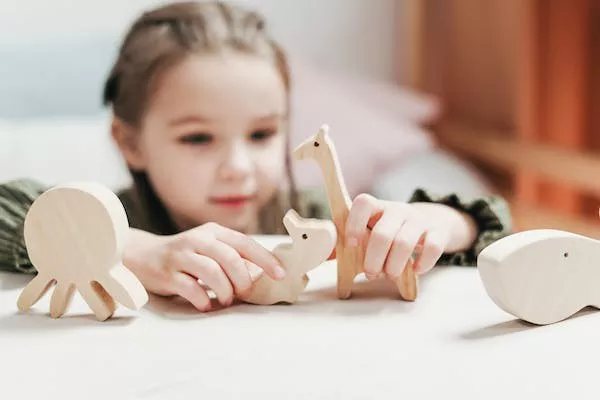In recent years, Montessori education and its principles have gained significant recognition for their focus on child-centered learning and holistic development. Central to the Montessori approach is the use of carefully designed educational materials, including Montessori toys. These toys go beyond mere entertainment and are specifically created to promote independent learning, foster imagination, and enhance various aspects of a child’s development. In this article, we will explore what Montessori toys are, their unique characteristics, and how they contribute to a child’s growth and learning.
The Philosophy of Montessori Education:
To understand Montessori toys, it is essential to familiarize ourselves with the philosophy that underpins Montessori education. Developed by Dr. Maria Montessori, this educational approach emphasizes the belief that children are naturally curious and have an innate desire to learn. Montessori education aims to provide an environment that encourages exploration, independence, and the development of essential life skills. Montessori toys align with these principles by offering open-ended, purposeful play experiences that foster the child’s natural development.
Characteristics of Montessori Toys:
Montessori toys possess distinct characteristics that differentiate them from conventional toys. Firstly, they are designed to be simple, often made from natural materials such as wood, metal, or fabric. These materials engage the senses and provide a sensory-rich play experience. Montessori toys also emphasize realistic representations, allowing children to connect with the real world and foster a deeper understanding of their environment. Additionally, these toys promote hands-on exploration, encourage problem-solving, and spark the child’s imagination and creativity.
Purposeful Play and Learning:
Montessori toys are not merely playthings; they serve a purpose in promoting specific skills and areas of development. These toys are carefully selected to support the child’s cognitive, physical, social, and emotional growth. For example, shape sorters enhance fine motor skills and shape recognition, while puzzles develop problem-solving abilities and spatial awareness. By engaging with purposeful play, children gain a deeper understanding of concepts and develop essential skills in a self-directed and meaningful way.
Open-Ended Play and Creativity:
One of the hallmarks of Montessori toys is their ability to promote open-ended play and creativity. Unlike toys with a fixed purpose or outcome, Montessori toys encourage children to use their imagination and explore endless possibilities. For example, a set of wooden blocks can be transformed into various structures, fostering problem-solving, spatial thinking, and creativity. By engaging in open-ended play, children develop critical thinking skills, learn to make choices, and cultivate their unique ideas and expressions.
Independent Learning and Self-Directed Play:
Montessori toys support the principles of independent learning and self-directed play. These toys are designed to be inviting and accessible, enabling children to choose and engage with them independently. They encourage self-motivated exploration, allowing children to follow their interests and learn at their own pace. This fosters a sense of autonomy and self-confidence as children develop a natural love for learning and a sense of ownership over their educational experiences.
Promoting Practical Life Skills:
An essential aspect of Montessori education is the emphasis on practical life skills. Montessori toys often include activities that simulate real-world tasks and foster independence. For example, a child-sized broom and dustpan encourage responsibility and develop gross motor skills. Practical life toys such as pouring and sorting activities enhance fine motor skills and promote concentration and order. By engaging in these activities, children develop a sense of competence, self-reliance, and an understanding of the importance of contributing to their environment.
Sensory Exploration and Development:
Montessori toys play a vital role in stimulating the senses and promoting sensory exploration. They engage children in activities that involve touch, sound, sight, and sometimes even taste and smell. Sensory toys such as textured balls or musical instruments provide opportunities for children to explore different textures, sounds, and movements. This sensory-rich play enhances the child’s sensory processing, fine-tunes their sensory awareness, and fosters cognitive and language development.


